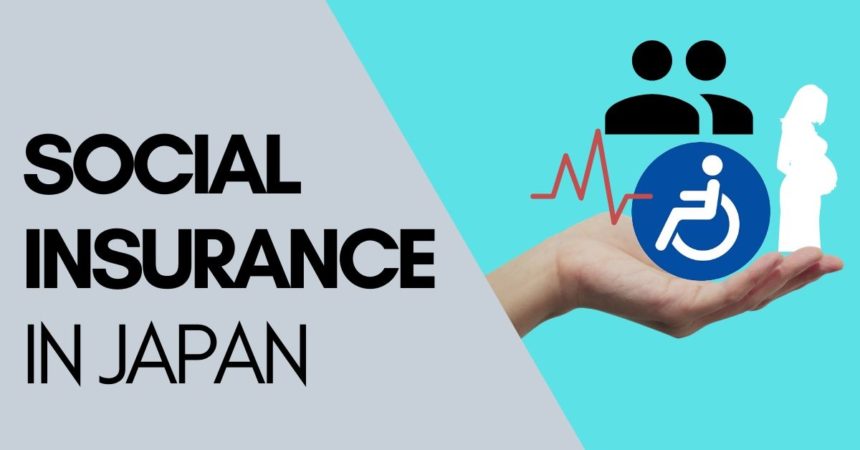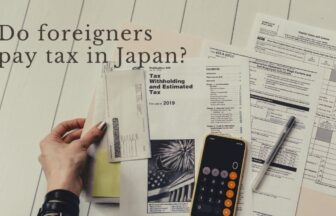It is wise to be aware of what and who is willing to support you into having a “guaranteed life”. That is basically the reason for establishing the social insurance system in Japan. This will provide you with the medical care benefits and pensions you will need in the event of sickness, injury, childbirth, death, old age, and disability.
As it is a universal law, all registered residents of Japan must apply in one of the appropriate social health care and pension insurance systems.
What is Social Insurance?
Social insurance (shakai-hoken) is a mandatory insurance scheme that is run by the state of Japan for the purpose is to have a secure and stable livelihood. It means you will be paying premiums (monthly) in preparation for events such as illness, aging, unemployment, occupational accidents, and nursing care.
There are five types:
- Medical insurance
- Pension insurance
- Employment insurance
- Work-injury insurance
- Long-term care insurance
Who is eligible to apply for those types of social insurance?
To explain to you further about each type of social insurance, its description, and benefits, please refer to the table below.
| Types of Insurance | To Whom it Applies | |
Public Medical Insurance
|
office workers | |
| sailors | ||
| public servants; teachers | ||
| self-employed persons; housewives, etc | ||
|
employees under the age of 65; and their dependents persons who have retired, are enrolled in the National Health Insurance, received a pension or mutual aid pension, etc |
||
Public Pension
|
all people aged 20-59 self-employed persons, student, unemployed, wives (dependent spouse) who do not fall under the 2nd or 3rd insured person, wives of a company/public employee |
|
|
people (under 70) who work for a company (costs covered by employee pension insurance enrollment) office workers, civil servants, etc. |
||
| public servants; private school teachers, office workers, civil servants, etc. | ||
| Long-term care insurance |
people aged 65 and over individuals aged 40 to 64 with a need for long-term care due to illness |
|
| Workers’ compensation insurance (work injury insurance) | affected workers or bereaved families when workers become injured, ill, disabled or dead due to work-related or accidents during travel | |
| Employment insurance | Provide unemployment benefits to stabilize living and employment when workers are unemployed | |
Classification by Status
In the case of employed and unemployed locals and non-locals (refer to those who have a valid visa in Japan), the table below shows the classification of the types of social insurance.
| Employed | Self-Employed |
|
Civil servant
Seafarers
National Assembly / Local Assembly
Private Company Employee
Public Servants mutual aid unions (short-term benefits) |
National Health Insurance National Pension |
TAKE NOTE: New employees do not pay Social Insurance on their first month of salary. The kind of insurance required from you will depend on your status.
How Social Insurance Work
1. MEDICAL INSURANCE
|
Health insurance (varies depending on where you work) |
|
|
Enrollment Open To |
Company employee |
|
Medical Treatment Insurance Coverage (outpatient/ inpatient expenses) |
Before compulsory education: The insurance will cover 80% of medical costs During compulsory education: (below age 70) The insurance will cover 70% of medical costs Aged 70 and over: The insurance will cover 80% of medical costs |
|
Childbirth & Childcare Lump Sum |
420,000 JPY (Please note that there are various conditions) |
|
Sickness Allowance |
If an ill/injured worker has been 3-days away from work, two-thirds of the standard daily remuneration will be paid per day from the fourth day. This period is limited to 1 ½ year TAKE NOTE: This does not apply to an employer who has exceedingly paid the amount of the sickness allowance. |
|
Maternity allowance |
During maternity leave, an employee who has not received compensation from her employer will receive two-thirds of the standard compensation per day from 42 days before birth (98 days of multiple births) to 56 days after delivery. TAKE NOTE: If the expected delivery date is delayed, the benefit date will be increased by the number of days delayed. |
|
At Death |
If the insured person or a family member is deceased, the family or dependents will receive 50,000 JPY funeral assistance. |
*Exceeding Medical Expenses If your monthly medical expenses exceed ¥ 80,100 + (100% equivalent medical expenses – ¥ 267,000) × 1%; the excess amount will be refunded based on your request.
*For foreigners who are registered and pay into the social security system are provided with the same care and support as their Japanese co-workers. On the other hand, illegal workers, who are neither registered with the government nor pay into the system, are not eligible for social security benefits.
Submit the following documents to your employer:
- your name and address;
- passport;
- residence card (Zairyu Card);
- MyNumber card (social security card)
2. PENSION INSURANCE (kosei nenkin)
|
Types of pension |
Pension Rate |
|
National Pension (aged 20 to 59) |
16,340 yen a month (April 2018 to March 2019) |
|
Employee Pension (age under 70) |
9.15% of monthly earnings |
|
Mutual Aid Pension (aged 60-65) |
12.230% to 15.154% of one’s monthly income and bonus |
1. The Japanese benefits claim form is available at the social security authority in each agreement country. You should fill out the form and file it to the social security authority, along with supporting documents.
- Claim for National Pension / Employees’ Pension Insurance (For Old Age / Disability Pension)
- Claim for National Pension / Employees’ Pension Insurance (For Survivors’ Pension)
2. Your completed claim form will be transmitted from the social security authority to the Headquarters of Japan Pension Service (JPS Headquarters) in Japan which will determine your Japanese benefits and pay you.
When changes occur with your:
- Address
- Bank account
- Eligibility status: level of disability; marital status.
- Report / Request from Beneficiaries Residing Abroad
This is submitted to the JPS Headquarters in Japan or the social security authority in each agreement county.
- Declaration of Period of Coverage
Upon receipt of your Declaration, the JPS Headquarters (the Social Insurance Operation Center) asks the social security authority in the country to provide your coverage record under the system of the agreement countries.
- Application form for income Tax Convention
A requirement to establish tax exemption in Japan. This is if Japan concludes the Tax Convention (on pension benefits) with the country where you live, your Japanese pension benefits are subject to income tax in your country.
3. LONG-TERM INSURANCE
- Apply to the municipal government; each applicant will undergo mental and physical assessment.
- The assessment will then be analyzed by a government computer program to classify each applicant from what level(6 levels) he/she belongs to.
- The classification result will then be reviewed by an expert committee.
- The applicant will be informed if rejected or not after 30 days.
*If dissatisfied with the decision, applicants may appeal to an agency at the prefectural level and ultimately to the courts. Eligibility is to be reevaluated every six months.
4. WORKER’S ACCIDENTAL/COMPENSATION INSURANCE
Every business with more than one worker is covered by accident insurance.
The accident insurance premiums are paid by the employer, and the payment is equal to a specified percentage of the worker’s salary. The figure is calculated relative to the danger of the worker´s occupation
5. EMPLOYMENT INSURANCE
- Register to the nearest Public Employment Security Office.
Submit the following documents:
- separation notice/letter (provided upon resignation)
- insurance card (provided by employer)
- alien registration card
- A recent photograph of you
2. Once your resignation is verified, then you will be eligible to receive the insurance benefit after 7 days to 3 months of waiting. (depending on reasons of your resignation)
*Employers must notify the Public Employment Security Office regarding their employees’ new health insurance status.
How Social Insurance is Calculated
Health Insurance, Nursing Insurance, Social Pension, Children Upbringing
These insurances are calculated by multiplying the standard monthly remuneration by the Social Insurance rate in the Tokyo area.
TAKE NOTE: Insurance rates are updated regularly every 6 months.
Standard Monthly Salary × Insurance rate = Insurance amount
STANDARD MONTHLY SALARY will be based on the 3-month average salary. For example, if you get 305,000 JPY as your 3 months salary, then the average is 300,000 JPY, which will be the basis of Standard Monthly Salary.
* based on a salary index
*Employees aged 40 to 64 have to pay an additional Nursing insurance tax.
 日本語
日本語








